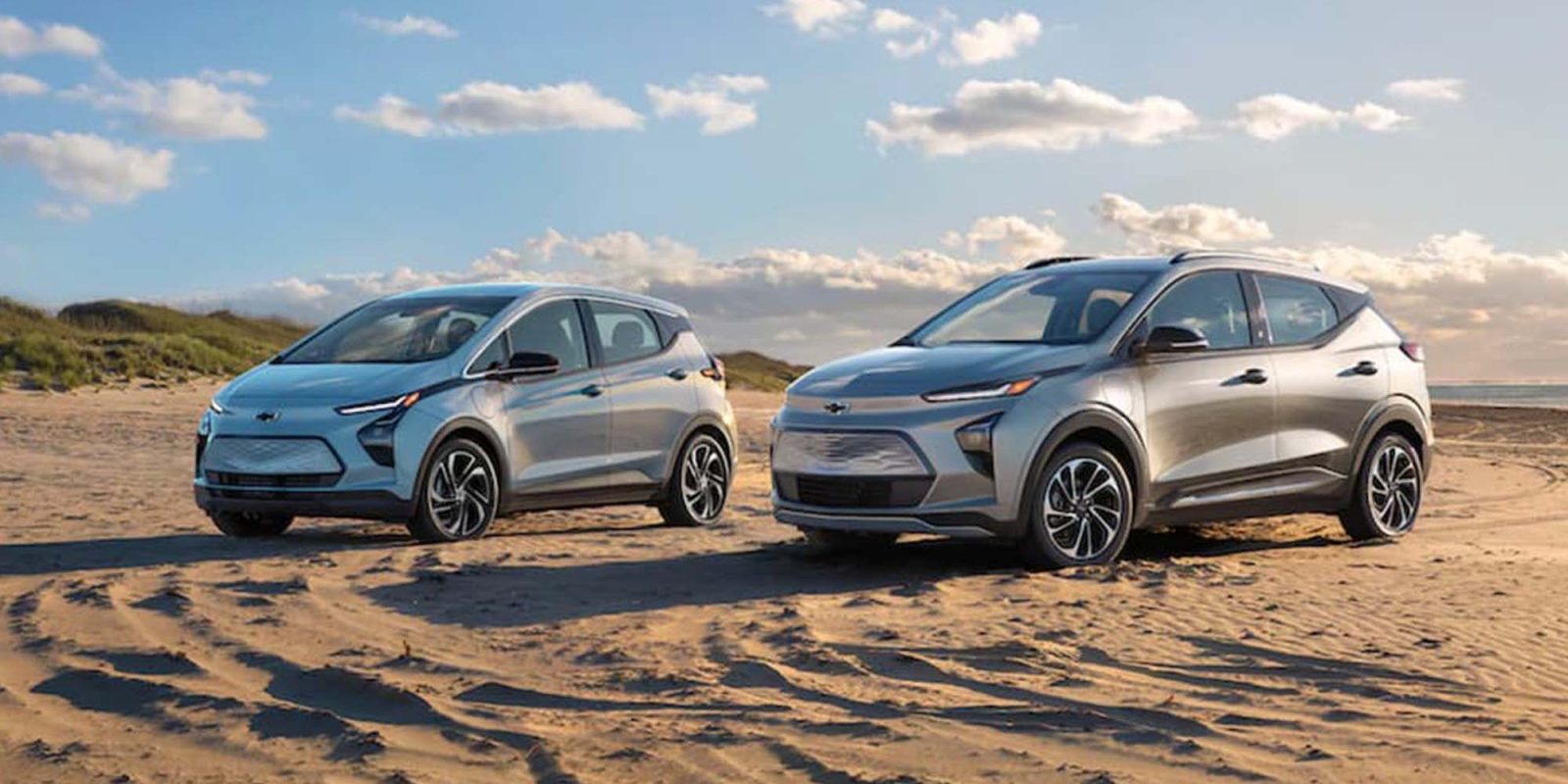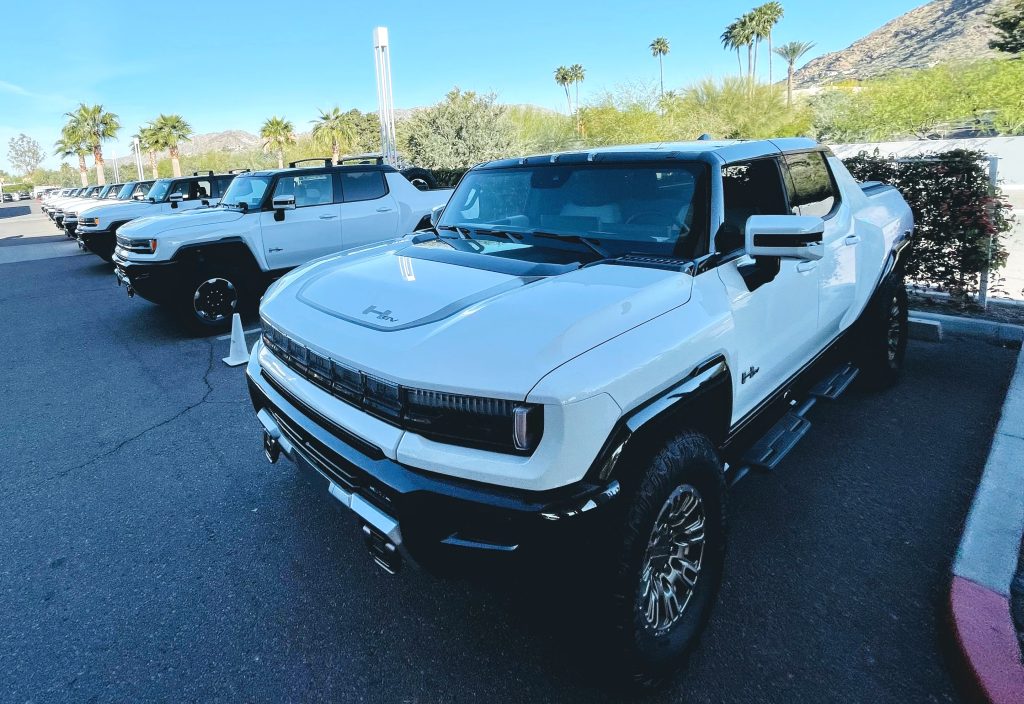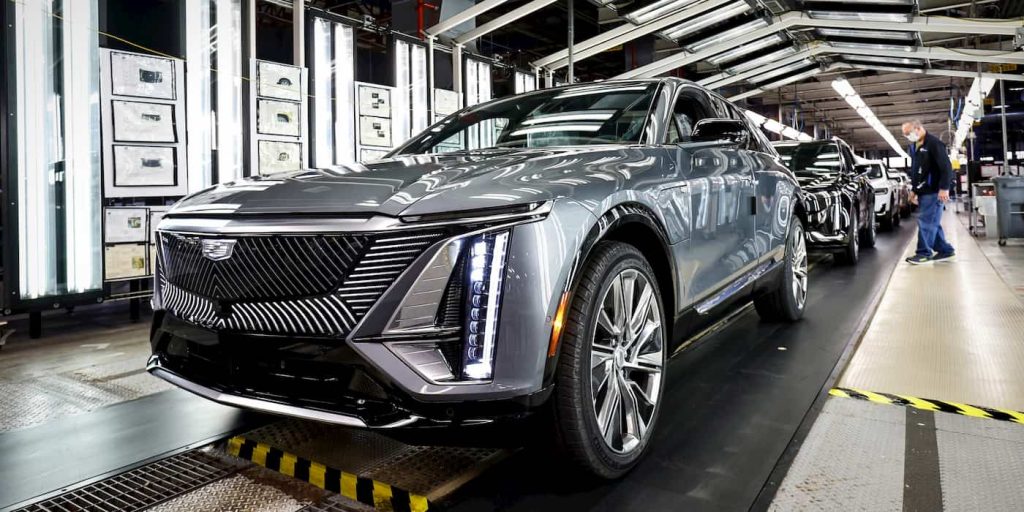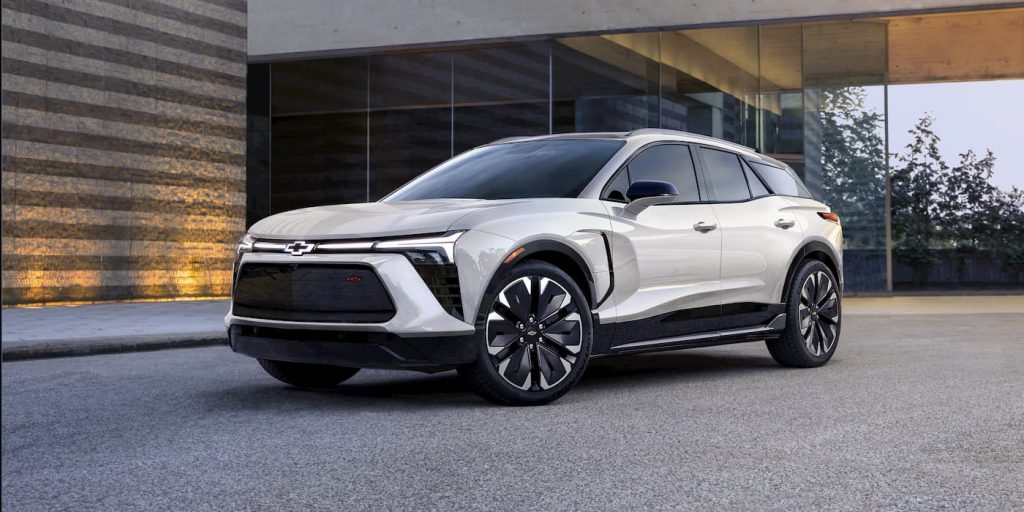
GM has released its Q3 delivery numbers and EV sales are plugging along, most notably with a huge increase in deliveries of GM’s first Ultium vehicles, the Cadillac Lyriq and Hummer EV, suggesting that GM might finally be getting Ultium off the ground.
But compared to GM’s overall non-EV sales, the Q3 total of just over 20,000 EVs sold represents a rather small percentage for a company that has repeatedly stated it is “all-in” on EVs.
The leader of the pack for GM’s EVs, as it has been for many years now, was the Bolt. Between EV and EUV models, Bolt sold 15,835 units, up 13% from Q2. This is not quite a record quarter for Bolt – that came at the start of this year with 19,700 in Q1.
But it is quite solid, especially for a vehicle that is going to be discontinued at the end of this year. It’s not often that vehicles have their best year of sales in their last year of existence, but it looks like that’s what’s about to happen for the Bolt.
No wonder, given what a screaming deal it is at base MSRP of $26,000. And it’s not just cheap; it was also good enough to win Electrek’s Vehicle of the Year award in this last year of its existence.
But now, moving on to Ultium, things are getting a little more interesting.
GM has struggled with Ultium since the beginning, and the ramp has been slower than many would expect. Ultium-based vehicles have had pretty low sales, though it looks like that’s changing this quarter.

Last quarter, GM delivered just 47 units of the Hummer EV, its first Ultium-based vehicle. Deliveries began way back in late 2021, and sales have been slow. Its best quarters so far were 411 units in Q3 2022 and 272 in Q2 2022, but other than that, it has never sold triple-digits in a single quarter.
This probably has something to do with the truck being entirely excessive, but it also indicates that GM has perhaps had trouble getting Ultium off the ground.
But that seems to have changed this quarter, as GM delivered 1,167 Hummers in Q3, nearly tripling its previous best from last year.

Cadillac Lyriq, the second Ultium-based EV, also saw a record quarter: 3,108 Lyriqs were delivered in Q3, more than double Q2’s previous 1,348 record.
Both of these are expensive vehicles, so they’re expected to have lower sales. But this progress is still large and suggests that GM might have turned a corner on production.
This is important news since GM’s mass market Ultium-based EVs are set to be released imminently. In fact, a few deliveries were already accounted for in the company’s Q3 results.

Apparently, 19 Blazer EVs and 18 Silverado EVs were delivered in Q3. This is the first time we’ve seen either of these vehicles show up in quarterly numbers and suggests that customers should be getting cars soon. GM says it recently began customer deliveries of the Blazer and has delivered a few Silverados to fleet customers.
Chevy recently opened order requests for the Blazer EV, so we hope to see the floodgates open and big numbers to show up. The fact that Lyriq and Hummer sales have increased so much over the course of one quarter gives us hope that this might be possible.
Finally, rounding out the total 20,092 EVs that GM delivered in Q3 are 35 Zevo 600 vans from GM’s electric last-mile delivery arm, BrightDrop.
That 20,092 number is up 28% from Q2, but still small compared to GM’s overall total of 674,336 vehicles delivered, including gas vehicles. That’s just under 3% of GM’s sales that are all-electric, which even means GM is underperforming compared to the national average of around 6-7% EV sales.
It’s also barely ahead of Rivian, a startup without over 100 years of production experience like GM has, which just announced 15,654 EV deliveries, beating estimates.
GM has claimed for years that it is “all-in” on EVs and that it would have 20 new EVs by 2023. So it’s going to take several more quarters of doubling or tripling EV production, while also reducing the production of vehicles that will continue to spew toxic waste into your lungs for the whole next decade or more of their use, if GM wants to deliver on this promise of being “all-in.”
FTC: We use income earning auto affiliate links. More.